When I transitioned out of the military, I had everything going for me. I had two college degrees, my physical and mental health, and a clear vision of what I wanted to do in my next career: Break into the high-tech space. I was a best-case-scenario transitioning veteran—one of the lucky ones—yet I still struggled to land on my feet. I didn’t have a technical background from my time in the Navy, so my shortcomings could be summed up in one phrase: I didn’t know what I didn’t know.
That proved a major obstacle, but it’s only one of many that veterans like me face every day in their efforts to transition into the workforce. The past three presidential debates leading up to Tuesday’s election  produced almost 300 minutes of politically packed content, yet the word “veteran” was only heard three times. This is surprising, given that 21 million Americans are proud to call themselves veterans, accounting for about 9% of the total U.S. population. Veterans are crippled by suicide and have unemployment and poverty rates unmatched by any other demographic in the U.S.
produced almost 300 minutes of politically packed content, yet the word “veteran” was only heard three times. This is surprising, given that 21 million Americans are proud to call themselves veterans, accounting for about 9% of the total U.S. population. Veterans are crippled by suicide and have unemployment and poverty rates unmatched by any other demographic in the U.S.
As Donald Trump prepares to enter the White House in January, those millions of veterans will be watching to see how well he delivers on his campaign promise, not just to reform the Veterans Affairs Department but to help the many veterans who supported him go on to secure high-paid jobs in growing fields.
WHAT VETERANS FACE NOW
Unfortunately, it simply isn’t the case that all companies love and want to hire military veterans. As one employer or another didn’t hire me, I was repeatedly told, “You’ll be fine—you have leadership skills.”
Those reassurances rang empty. Worse, they’re unintentionally cruel because they distort veterans’ expectations for post-service employment and set them up for massive disappointment. The first thing employers can do is simply be honest: Tell them it’s going to be rough, that they’ll feel out of their element, and that they’ll most likely take an initial pay cut. Tell them anything other than that it will be easy.
The Trump Administration will have an opportunity to change this. Effective policies and programs to address career challenges for transitioning veterans must be a priority, even though those issues garnered little recognition over the course of the campaign. Here are three things the president-elect can do to help veterans secure good, high-paying jobs in industries that will power the U.S. economy in the years ahead after they’ve completed their service to our nation.
1. INVEST IN EDTECH FOR VETERANS
Veterans are all required to attend a slate of transition assistance programs designed to prepare them for the next phase of their lives. This typically involves resume and interview prep, dressing for success workshops, and general advice from supposed “experts.”
But regardless of what you did in the military, if you’re truly honest with yourself, you’ll recognize a
fundamental gap in your knowledge and relevant work experience. You probably don’t have the hard skills that recruiters and hiring managers expect—particularly in the most competitive high-tech industries. In those sectors, you’re almost certain to face an uphill battle that can only be  mitigated by higher education.
mitigated by higher education.
Many veterans go back to college or graduate school, but that isn’t the only path we should be pushing. There’s also growing momentum behind edtech training, which can give new hope to those for whom a conventional degree isn’t an option. Companies like Coursera and Udacity are making it easier to gain the knowledge and formal training required to break into high-paying jobs in industries that suffer from talent shortages. And while pure capitalists may never admit this, the CIA-funded venture capital firm In-Q-Tel has been a blueprint for success.
The first of its kind, In-Q-Tel is a nonprofit, government-backed fund that infuses capital (tax dollars) into startups that focus on national defense. This type of strategy could prove a model for other initiatives for helping transitioning veterans into the workforce. Not only that, but a captive venture-capital firm like this one may be an effective way to encourage more edtech innovation that can help veterans without having to get bogged down in bureaucracy. The learning economy is here to stay, so we may as well put it to good use for veterans.
2. FOCUS ON RETENTION FIRST, JOBS SECOND
When I read about government-sponsored initiatives like the White House’s Joining Forces Initiative, it’s hard not to cringe. In 2016, over 40 major corporations made a promise to hire and train 110,000 veterans. In actuality, many of these companies had already hired veterans in high volumes, and this pledge resulted in pitifully few new net hires.
Despite the PR effort, Joining Forces failed to significantly change most employers’ hiring practices. More to the point, there actually isn’t a veteran unemployment problem—at least not anymore. The unemployment rate of young military veterans ages 18–24 reached 29% in 2011. Today, post-9/11 veteran unemployment has dipped to 4.4%, or slightly better than the overall national unemployment rate of 4.9%. Studies show that the real problem is in retaining veterans in the jobs they’ve been hired into.
VetAdvisor and the Institute for Veterans and Military Families at Syracuse University (IVMF) recently conducted a survey that found that nearly half of the veterans who left their first post-military jobs did so within 12 months or less, and over 65% left within two years. The Trump Administration will need to develop policies and invest in resources that incentivize retention. One idea: creating a rating system for companies that deliberately track the retention of veteran hires, then making those rankings public.
3. TAKE A CUE FROM UNIVERSITY-FUNDED VETERAN PROGRAMS
Outside the federal government, there are many great programs that help train, repurpose, and encourage veterans to pursue career paths they’re passionate about. Stanford University’s Ignite and Syracuse University’s Veteran Career Transition Program are two great examples of programs designed specifically for veterans to gain an edge at a very low cost.
Both bring together academic and professional resources to help veterans pursue career options they may not have known to be available to them. Programs like this don’t require a huge investment in public funds,  either; policymakers just need to help promote and direct veterans toward them. For all its faults, the American university ecosystem has created a successful template that the Trump Administration should tap into in order to help match transitioning veterans with jobs in fields suffering talent shortages, like data science and cybersecurity.
either; policymakers just need to help promote and direct veterans toward them. For all its faults, the American university ecosystem has created a successful template that the Trump Administration should tap into in order to help match transitioning veterans with jobs in fields suffering talent shortages, like data science and cybersecurity.
President-elect Donald Trump shocked the world this week. For better or for worse, let’s all hope that he and his administration surprise us by focusing far more attention on service members than we saw during the campaign. That won’t be good just for veterans, it will be good for the fastest growing parts of our economy, too.
Justin Ossola is the co-founder of Tech Qualled and a 14-year Navy veteran. Justin is a graduate of the United States Naval Academy, received a Master in Business Administration degree from Georgetown University and a Master in Public Administration degree from the Harvard Kennedy School.
To read the full article, visit FastCompany.

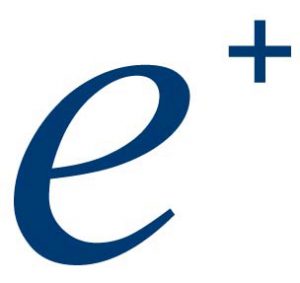

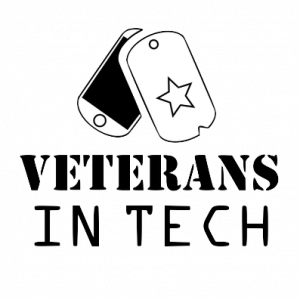
 potentially all electric future. In response to this competition in the marketplace, companies such as Daimler, Chrysler, Ford, and Volkswagon are all building battery production facilities. The outcome is still unclear but will almost certainly rely on a highly trained and knowledgeable workforce. Unfortunately, without such technologies, some may question the employability of our transitioning veterans and how they will be able to bridge this knowledge gap.
potentially all electric future. In response to this competition in the marketplace, companies such as Daimler, Chrysler, Ford, and Volkswagon are all building battery production facilities. The outcome is still unclear but will almost certainly rely on a highly trained and knowledgeable workforce. Unfortunately, without such technologies, some may question the employability of our transitioning veterans and how they will be able to bridge this knowledge gap. curriculums for those interested in careers in virtual reality, artificial intelligence and self-driving vehicles; basically, the jobs of tomorrow. In contrast, Tech Qualled takes a slightly different approach by focusing solely on military veterans. They train selected veterans over a period of 8 weeks, both online and in-residency in Fort Worth, Texas. Tech Qualled also provides the benefits of placement at the conclusion of its formalized training program with a 95% placement rate.
curriculums for those interested in careers in virtual reality, artificial intelligence and self-driving vehicles; basically, the jobs of tomorrow. In contrast, Tech Qualled takes a slightly different approach by focusing solely on military veterans. They train selected veterans over a period of 8 weeks, both online and in-residency in Fort Worth, Texas. Tech Qualled also provides the benefits of placement at the conclusion of its formalized training program with a 95% placement rate.
 last 16 years at
last 16 years at 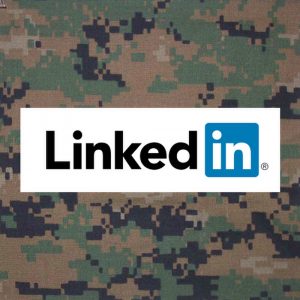


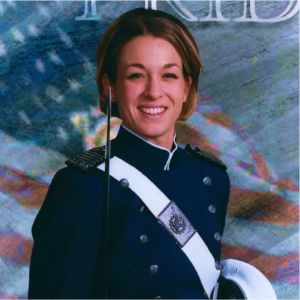
 their website, how they write the job description. Aim to speak their language. You need to connect. If writing about military experience, translate it so civilians can understand. There are multiple websites out there that can assist, but at it’s simplest, get a civilian friend to read it and provide feedback. Use Veterati.com, a veteran mentoring network, to find an HR professional to consult and maybe even review your resume.
their website, how they write the job description. Aim to speak their language. You need to connect. If writing about military experience, translate it so civilians can understand. There are multiple websites out there that can assist, but at it’s simplest, get a civilian friend to read it and provide feedback. Use Veterati.com, a veteran mentoring network, to find an HR professional to consult and maybe even review your resume.
 sales is why he joined Tech Qualled. He understands the challenges associated with this transition and enjoys working with veterans so they can successfully break into the high tech space. Brian is a graduate of Tulane University where he received his Bachelors of Science in Finance; was the ROTC Battalion Commander, and is proudly a member of the Sigma Phi Epsilon fraternity.
sales is why he joined Tech Qualled. He understands the challenges associated with this transition and enjoys working with veterans so they can successfully break into the high tech space. Brian is a graduate of Tulane University where he received his Bachelors of Science in Finance; was the ROTC Battalion Commander, and is proudly a member of the Sigma Phi Epsilon fraternity.
 learning theories into our program. As a result, information retention increases, and our learning outcomes are dramatically improved.
learning theories into our program. As a result, information retention increases, and our learning outcomes are dramatically improved. need levels. Two courses with identical content will have completely different learning outcomes if there is no response from the instructor or limited engagement in general, versus having a high-touch online learning environment. Our cohort sizes allow us to respond quickly to each learner, and time to devote to those who have higher needs so every learner feels supported. Learner frustration can directly decrease learning outcomes. The benefit of this approach is to increase the overall learner experience and put the learners at ease psychologically.
need levels. Two courses with identical content will have completely different learning outcomes if there is no response from the instructor or limited engagement in general, versus having a high-touch online learning environment. Our cohort sizes allow us to respond quickly to each learner, and time to devote to those who have higher needs so every learner feels supported. Learner frustration can directly decrease learning outcomes. The benefit of this approach is to increase the overall learner experience and put the learners at ease psychologically.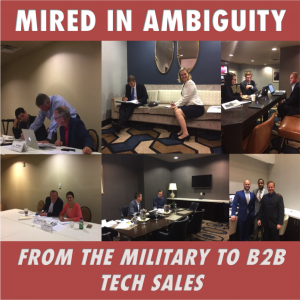



 produced almost 300 minutes of politically packed content, yet the word “veteran” was only heard three times. This is surprising, given that
produced almost 300 minutes of politically packed content, yet the word “veteran” was only heard three times. This is surprising, given that  mitigated by higher education.
mitigated by higher education. either; policymakers just need to help promote and direct veterans toward them. For all its faults, the American university ecosystem has created a successful template that the Trump Administration should tap into in order to help match transitioning veterans with jobs in fields suffering talent shortages, like data science and cybersecurity.
either; policymakers just need to help promote and direct veterans toward them. For all its faults, the American university ecosystem has created a successful template that the Trump Administration should tap into in order to help match transitioning veterans with jobs in fields suffering talent shortages, like data science and cybersecurity.